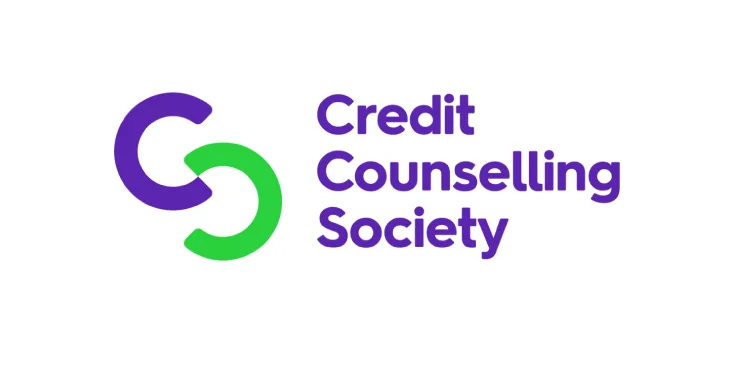
If I miss a mortgage payment, I can automatically lose my home.
Worried that you might miss a mortgage payment? Maybe you’ve already missed one, or more? It’s important to take quick action to avoid losing your home. Learn about your rights and options if you’re having difficulty paying your mortgage.
What you should know
A mortgage is a loan used to buy a home or other property. Under the law in BC, a mortgage gives the lender a charge — meaning an interest or a right — against the property being purchased. That charge gives the lender rights if the borrower defaults on the mortgage.
The most common way for a borrower to default is by not making payments under the mortgage as promised. Most mortgages also say that it is a default if you:
don’t pay the property taxes
add a second mortgage without the lender’s permission
abandon the property
declare bankruptcy
If you default on your mortgage, the lender has the right to accelerate (speed up) the mortgage. This allows the lender to claim the full balance owed under the mortgage, plus interest and other costs, even though the mortgage term hasn’t yet expired.
The lender can then start legal proceedings to take the property or sell it to pay the mortgage debt. This legal process is called foreclosure. (Learn what's involved in foreclosure proceedings.)
“I was having trouble managing my debt, and I missed a couple payments on my mortgage. I got a demand letter from the lender. I responded, and said I’d like to get my mortgage back in good standing. I asked if I could have until the end of the month to pay what I owed. The lender agreed. Now, I’m up to date on my payments and I get to keep my home.”
– Shaun, Surrey, BC

When you default on your mortgage, you don’t automatically lose your home.
If you miss a mortgage payment, the lender will usually send a reminder letter. If they don’t hear from you or receive the missed payment, the lender will then follow up with a demand letter. The letter will demand you pay the amount owing under the mortgage by a certain date, or the lender will sue you.
Under the law, the lender must send you a demand letter before they can start legal proceedings to take your home.
The demand letter must say exactly what you owe under the mortgage. It must also say that:
you have to pay a certain amount by a certain date to catch up on what you owe to reinstate your mortgage (restore it to good standing), or
you have to pay the whole amount you borrowed (not just what you owe) plus interest and expenses to redeem your mortgage (pay it off).
If you don’t do one of these things, your lender can start legal proceedings to take your home. Here, we explain what's involved in foreclosure proceedings.
You have options
If you missed some mortgage payments but think you can continue to make them in the future, consider reinstating your mortgage. Reinstate means to pay what you owe to get your mortgage back in good standing. You can reinstate your mortgage if the mortgage term hasn’t expired and your lender consents.
When you reinstate your mortgage, you must pay all arrears by a certain date. Arrears are money you owe that should have been paid earlier. You also have to pay anything it costs your lender to collect from you, including legal fees.
Discuss with your lender how and when you will catch up on your payments. Your lender may agree to change the terms of the mortgage to help you. If you have a short-term problem, like a temporary layoff, the lender may agree to take smaller payments for a time, and add the shortfall to the total amount of your mortgage.
Under the law in BC, if you have enough money to reinstate but the lender refuses, you can apply for a court-ordered reinstatement.
Tip
Try renegotiating the terms of your mortgage with your lender. Most lenders don’t want to own property. They would rather have you stay in your home and keep paying them. They can make a lot of money off the interest you pay on the mortgage. Many lenders will be open to making some sort of deal to get your mortgage back in good standing, instead of starting foreclosure proceedings.
To redeem your mortgage is to pay the whole amount of the mortgage off (not just payments that you have fallen behind on).
If the mortgage term has expired, you can redeem your mortgage. Of course, there’s always the question of money. More on that in a moment.
If the mortgage term has not expired, you may be able to redeem your mortgage. It will depend on the prepayment terms of the mortgage. For example, there may be a penalty to pay out the mortgage early.
To redeem your mortgage, you must pay the principal amount owed, interest and legal costs. Depending on the terms of the mortgage, you may also have to pay any property tax arrears.
As well, there may be other charges registered against the property that you will need to pay out. These include other mortgages, liens, or court judgments registered against the property.
In general, there are two ways to get the money to redeem your mortgage:
get a loan from another lender (this is also called refinancing), or
sell your property.
These options are discussed next.
If you want to redeem your mortgage, you will need money to pay off your whole mortgage. One option is to borrow the money from another lender, giving the new lender a mortgage on the property.
The new mortgage has to be enough to pay the other mortgage plus any arrears and costs that you owe. For example, you will likely be responsible for the first lender’s legal costs.
Where can you find a lender willing to give you a new mortgage to pay off an existing mortgage? A mortgage broker may be able to help you with this. Be cautious of any offers of help you didn’t request.
Tip
If you’re concerned about the terms of a new mortgage, have someone else look over the contract. Consider getting independent legal advice. Be cautious if the terms seem too good to be true. Take your time before signing the mortgage documents.
If you want to redeem your mortgage, you may decide to sell your home right away to pay the lender. This may be a good option if:
you can’t reinstate your mortgage
your home is in good condition and can be sold
your home is worth at least as much as you need to redeem the mortgage
you don’t want, or can’t get, a new mortgage
This is also a good option if you have equity in your home. Equity refers to any money that would be left for you after you pay:
the amount owing on the mortgage, including interest
any other debts owing on the property (such as any property taxes or any court judgments registered against the property)
If you don’t reinstate or redeem your mortgage, your lender can start foreclosure proceedings. Usually, this happens after you’ve missed three months of payments. But it can happen sooner. Learn what's involved if you’re facing foreclosure.
Be aware that in foreclosure proceedings, the court may order your home to be sold. If you don’t take part in the proceedings, you may get little or no notice that you have to move.
As well, if the money from the sale doesn’t pay all the mortgage debt, your lender will have an enforceable judgment (court order) made against you for the shortfall (the remaining amount of the debt). The lender can try to collect this from you for up to 10 years.
Work out the problem
Call your lender when you start experiencing financial difficulty. Discuss with them how and when you will catch up on your payments. Ask them about options to get back on a good footing. Keep them informed as circumstances evolve.
To get financial difficulties under control, a key step is to assess your current situation and prioritize your debts.
If you’ve defaulted on your mortgage, it’s important to take action quickly to avoid losing your home. Decide whether to reinstate your mortgage or to redeem it. The latter may involve refinancing or selling your home. These options are explained above.
Who can help

Credit Counselling Society
A non-profit society that supports and counsels people struggling with debt.

